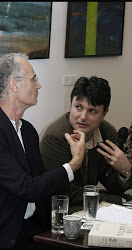Why do Norwegians use 'texas' to mean 'crazy'?
- 24 October 2015
Norwegians use the word "texas" as slang to mean crazy, it has emerged. But when did this start happening, and how unusual is it?
To most of the world, Texas is known as a big state in southern America.
But to Norwegians, it is also a word that frequently crops up in everyday conversation - often in the phrase "Der var helt texas!" [That was very completely/totally texas!].
The word is slang for "crazy" or "wild" and is used to refer to a chaotic atmosphere, Texas Monthly first reported.
It became part of the language when Norwegians started watching cowboy movies and reading Western literature, according to Daniel Gusfre Ims, the head of the advisory service at the Language Council of Norway.
"The genre was extremely popular in Norway, and a lot of it featured Texas, so the word became a symbol of something lawless and without control," he says.
Its first usage dates back to 1957, when it appeared in a novel by Vegard Vigerust called The Boy who wanted to buy Norwegian Broadcasting Corporation. The author writes "he would make it even more texas in the village?".
Nowadays, the word is widespread all over Norway. It's frequently used in the phrase "helt texas" [completely crazy], which has appeared in Norwegian newspapers 50 times this year, he says.
It's often used negatively, but not always. "It could be a party out of control, a class out of control, or traffic. It could also be used by someone who had sold many products," he says.
Gusfre Ims says this language phenomenon - metonymy, where a thing or concept is called not by its own name, but by another name which is associated with it - is pretty common in Norway, and language generally.
Norwegians also use the term "hawaii football" to describe an "out-of-control" match, he says. The word "klondike", a region in Canada associated with the gold rush, is used to describe economic expansion, and also has a hint of something going out of control.
He also points to terms such as "Armageddon" and "champagne".
"People don't mean the place in the Bible, or the area in France," he says.
Erin McKean, the founder of the online dictionary Wordnik, agrees that words are often adopted into language in this way.
"I'm not surprised Norwegians would use this kind of geography to convey a quality. This is how we make language - emphasing one aspect of the word, or using metaphors," she says.
McKean says there are plenty of examples of the English language using perceived characteristics of people from other places, which is a common occurrence with neighbouring countries.
"Dutch courage is associated with having to drink to be courageous. A Dutch treat [when people pay for their own share of an expense] isn't exactly a treat. We talk about taking French leave, or an Irish goodbye.
"The closest thing to we probably have to 'texas' in America is berserk from the Norse warriors, but that's apparently Icelandic, although disputed," she says.




